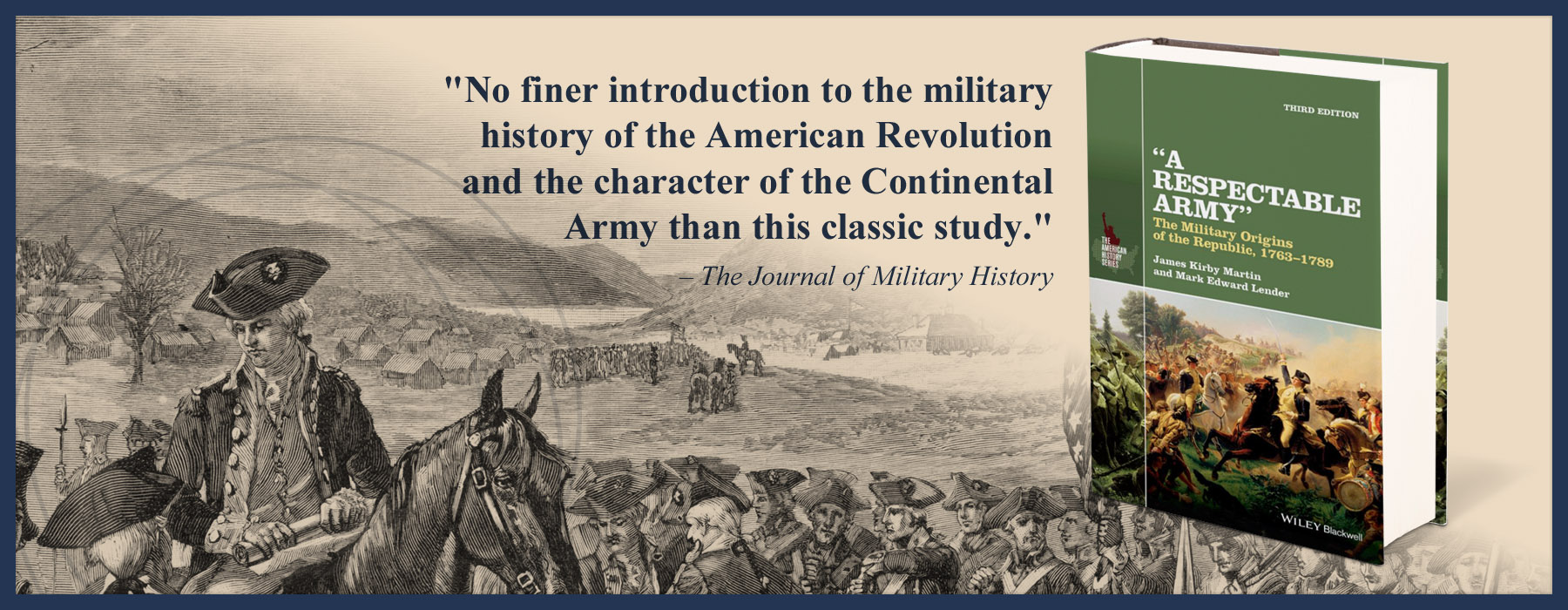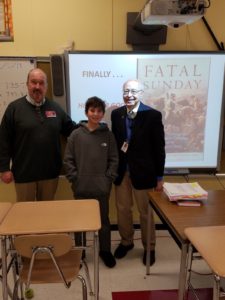About Me
Author, historian, and professor emeritus. My approach is to deeply research what’s interesting to me and then make that interesting to readers. Follow me into the archives and into the field on my blog…



As any historian will tell you, scholarship can take some unusual turns. Those turns involve not only what you find, but in how and where you present your findings. In my case, a turn took me to Black River Middle School in Chester, New Jersey.

From left to right: me, Ryder, Mr. Joe Pizzo.
One of my grandsons, Ryder James Leckie, was fortunate enough to have Mr. Joseph Pizzo as his 7th-grade English teacher. When Mr. Pizzo asked the class if anyone knew an author who could come and talk about his or her writing, up shot Ryder’s hand. He promptly volunteered me to visit with Mr. Pizzo’s class and talk about my book, Fatal Sunday: George Washington, the Monmouth Campaign, and the Politics of Battle. (This seemed heavy stuff for the 7th grade, but Ryder had assured everyone: “you can buy it on Amazon.” He’s a budding marketing guru.) Inasmuch as I live in Richmond, Virginia, guaranteeing my appearance at a New Jersey middle school was an act of faith on Ryder’s part.
But who am I to deny a grandson? So my wife and I hit the road for New Jersey. Then the shock: Once at our daughter’s home, we found that Ryder had volunteered me not only for his class with Joe Pizzo—but for all five of Joe’s classes over the course of the day!
Actually, it was a great day. Joe Pizzo is a talented and dedicated teacher who loves his work. And after teaching five of his classes I came away with a new appreciation of how hard our public school teachers work. But I enjoyed every minute. Five classes paid attention, asked good questions about the source materials I passed around—I risked a stamped copy (remember the Stamp Act?) of the London Gazette—which always came back unwounded and which generated plenty of comments. Who was “this guy” Henry Laurens and why did he write so many letters, one student asked when I showed the class a copy of Letters of Delegates to Congress. And there were always questions about George Washington—from his false teeth to his talents as a commander and politician.
It was the kind of day that reminded me of why I became a historian, and that what historians do matters. The day certainly drove home that what Joe Pizzo and his colleagues do matters. And it was nice to know that Ryder had started it all.
………………………………………………….
For other history-related posts and information, sign up for my newsletter.
Author, historian, and professor emeritus. My approach is to deeply research what’s interesting to me and then make that interesting to readers. Follow me into the archives and into the field on my blog…

By subscribing, you will share in interesting discoveries that have greatly informed my writing. I’ll introduce you to historians and authors with whom I collaborate, and take you into the archives and battlefields of Revolutionary America. I’ll also include my definitive (yet informal) book- or author-related event information, and provide event news pertinent to you and your location.
Collection of data from this website is GDPR compliant, and any information you may have about data collection can be found in our privacy policy.